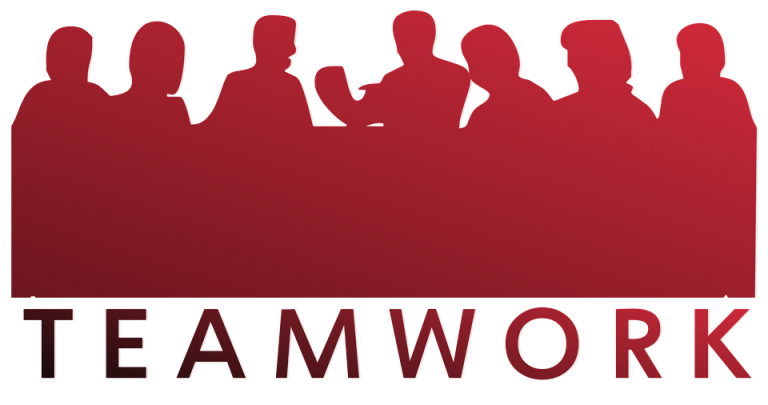What is a business administration certificate? This question opens a door to understanding a credential that can significantly impact your career. In today’s competitive job market, this certification serves as a vital tool for aspiring professionals looking to enhance their business knowledge and skills. It encompasses a diverse range of topics, equipping students with the managerial expertise necessary for various industries.
The significance of obtaining this certificate cannot be overstated, as it not only boosts your resume but also demonstrates a commitment to career development. From fundamental business principles to specialized areas of study, the curriculum is designed to provide a comprehensive foundation that prepares students for real-world challenges.
Overview of Business Administration Certificate
A business administration certificate is a credential that demonstrates an individual’s foundational understanding of key concepts in the field of business. Unlike a degree, which often requires a multi-year commitment, a certificate program usually has a shorter duration, allowing students and professionals to quickly acquire essential skills and knowledge. This certificate is an attractive option for those seeking to enhance their qualifications without the extensive time or financial investment associated with a full degree.The purpose of obtaining a business administration certificate is to equip students with practical skills that are directly applicable in the job market.
In today’s rapidly evolving business landscape, employers seek candidates who not only possess theoretical knowledge but can also apply it effectively in real-world situations. This certificate serves as a valuable asset, enhancing one’s employability and career prospects, especially in competitive job sectors. The significance of this credential is underscored by the growing demand for professionals who can navigate the complexities of business operations, understand marketing strategies, and manage financial resources efficiently.
Common Areas of Study in Business Administration Certificate Programs
Business administration certificate programs typically cover a range of subjects designed to provide a comprehensive overview of the business world. These areas of study prepare individuals for various roles within organizations, facilitating a deeper understanding of how businesses operate. The following core topics are commonly included in these programs:
- Principles of Management: This subject provides insights into how organizations are structured, the role of managers, and the importance of leadership in achieving business objectives.
- Marketing Fundamentals: Students learn about market research, consumer behavior, and effective marketing strategies that drive sales and customer engagement.
- Financial Accounting: This course covers the basics of financial statements, budgeting, and financial analysis, allowing students to understand the financial health of a business.
- Business Law: Understanding the legal environment of business is crucial. This area explores contracts, regulations, and ethical issues that affect business operations.
- Human Resource Management: This topic addresses the recruitment, training, and development of employees, emphasizing the importance of human capital in achieving organizational success.
The study of these core areas not only enhances theoretical understanding but also builds practical skills that can be immediately applied in the workplace. This multidimensional approach ensures that students are well-prepared to tackle various challenges in the business environment.
Acquiring a business administration certificate empowers individuals to advance their careers and adapt to the evolving needs of employers.
Benefits of Earning a Business Administration Certificate

Earning a Business Administration Certificate can significantly impact your career trajectory, providing you with essential skills and knowledge that enhance your professional profile. This certification is not just an academic achievement; it represents a commitment to understanding the complexities of the business world, making you a more attractive candidate for various roles. The advantages gained from this certification extend beyond mere resume enhancement.
It equips individuals with managerial skills and critical business acumen necessary for navigating today’s competitive job market. With a strong foundation in business principles, certificate holders often find themselves better prepared to tackle real-world challenges and lead teams effectively.
Career Advancement Opportunities
Holding a Business Administration Certificate opens doors to numerous career advancement opportunities. This certification signals to employers that you possess a strong understanding of business operations, which can lead to promotions and new job offers. The following industries greatly value this certification:
- Finance: Professionals in banking, investment, and financial planning often look for candidates with a solid grounding in business principles.
- Healthcare: As medical facilities evolve into more business-oriented entities, understanding management practices becomes crucial.
- Technology: The tech industry values individuals who can bridge the gap between technical expertise and business strategy.
- Consulting: Business consultants need to understand various industry practices, making this certification highly beneficial.
- Retail: Retail management roles require knowledge of supply chain management, marketing, and customer relations, all covered in business administration programs.
This certificate is instrumental in enhancing managerial skills and fostering a nuanced understanding of business dynamics. The coursework typically covers essential topics such as strategic planning, financial analysis, and marketing strategies, all of which are critical for effective decision-making.
“Individuals with a Business Administration Certificate are often seen as proactive learners who are committed to their personal and professional growth.”
By integrating the knowledge gained from this certification, professionals are better positioned to not only excel in their current roles but also to transition into higher-level positions, demonstrating leadership and innovation within their organizations. The combination of enhanced skills and expanded career opportunities makes the Business Administration Certificate a valuable asset in today’s workforce.
Program Structure and Curriculum
A business administration certificate program is designed to provide students with essential knowledge and skills relevant to various business environments. The curriculum typically integrates theoretical learning with practical applications, allowing students to understand how different business components work together. The structure of these programs can vary by institution but generally includes core subjects that lay the foundation for a successful career in business.The typical curriculum of a business administration certificate program comprises both core subjects and electives, which together equip students with a well-rounded understanding of business principles.
The core subjects cover fundamental aspects of business, while electives allow students to tailor their education to their specific interests and career goals.
Core Subjects and Electives
The core subjects form the backbone of the program, ensuring that all students acquire the necessary knowledge to thrive in the business world. Electives provide opportunities for deeper exploration into specific areas of interest. Below is a detailed representation of the curriculum structure in a table format:
| Core Subjects | Electives | Credit Hours | Typical Duration |
|---|---|---|---|
| Principles of Management | Marketing Strategies | 3 | 1 Semester |
| Financial Accounting | Business Law | 3 | 1 Semester |
| Business Communication | Entrepreneurship | 3 | 1 Semester |
| Statistics for Business | Human Resource Management | 3 | 1 Semester |
Incorporating practical projects and internships into the curriculum is essential for developing real-world skills. Engaging in hands-on experiences allows students to apply theoretical concepts learned in the classroom to actual business situations. This practical approach not only enhances learning but also prepares students to navigate the complexities of the business environment. By participating in internships, students gain valuable insights into workplace dynamics, enhance their resumes, and often establish professional networks that can assist in future job placements.
“Practical experience is invaluable in understanding the intricacies of business operations and management.”
Admission Requirements and Application Process
Enrolling in a Business Administration Certificate program is an exciting step towards enhancing your educational credentials and career prospects. Understanding the admission requirements and application process is crucial in ensuring a smooth transition into this academic endeavor. Typically, admission into a Business Administration Certificate program requires a set of standard criteria that candidates must meet. These requirements may vary by institution, but generally include a high school diploma or equivalent, a completed application form, and possibly the submission of standardized test scores.
Additionally, some programs may require letters of recommendation or a personal statement outlining the applicant’s goals and motivations.
General Admission Requirements
The following Artikels the common admission prerequisites for enrolling in a Business Administration Certificate program:
- High School Diploma or Equivalent: Applicants must possess a high school diploma, GED, or an equivalent certification.
- Completed Application Form: A fully filled application form must be submitted along with any required documents.
- Standardized Test Scores: Some programs may request scores from tests like the SAT or ACT, though this is becoming less common.
- Personal Statement: A brief essay that conveys the applicant’s career objectives and reasons for pursuing the certificate.
- Letters of Recommendation: Recommendations from teachers, employers, or professionals who can attest to the applicant’s abilities and character may be requested.
Application Process Steps
Here’s a straightforward guide to navigating the application process for a Business Administration Certificate program:
1. Research Programs
Explore various institutions and their Business Administration Certificate offerings to find a program that fits your career goals.
2. Check Admission Requirements
Review the specific requirements of each program you are interested in, as they can differ significantly.
3. Prepare Application Materials
Gather all necessary documents, including your transcripts, personal statement, and letters of recommendation.
4. Complete the Application Form
Fill out the application form accurately, ensuring all sections are filled out completely.
5. Submit Your Application
Send in your application along with any fees by the specified deadline.
6. Follow Up
After submission, confirm that your application has been received and check if any additional materials are needed.
Tips for Preparing an Effective Application
Crafting a compelling application can significantly enhance your chances of acceptance. Here are some strategies to help you stand out:
Start Early
Begin your application process well ahead of deadlines to avoid last-minute stress.
Personalize Your Statement
Tailor your personal statement to reflect your unique experiences and how they relate to your interest in business administration.
Seek Feedback
Have mentors or peers review your application materials to provide constructive feedback and catch any errors.
Highlight Relevant Experience
Emphasize any work or volunteer experience that demonstrates your leadership, teamwork, or business skills, even if they are not directly related to business.
Stay Organized
Keep track of deadlines, required documents, and any correspondence with the admissions office to ensure a smooth application process.By understanding the admission requirements, following the application steps, and implementing these tips, prospective students can confidently approach their journey into a Business Administration Certificate program.
Career Opportunities and Job Roles
The pursuit of a Business Administration Certificate opens numerous doors in the professional realm. This credential is highly valued by employers across various sectors, offering a foundation for a wide range of career pathways. Individuals equipped with this certificate can confidently engage in job roles that not only foster personal growth but also enhance organizational effectiveness.
With a Business Administration Certificate, graduates can explore various roles that leverage their skills in management, finance, marketing, and operations. Here are some of the prominent job roles available:
Potential Job Roles
Individuals with a Business Administration Certificate can pursue a variety of positions. The following list highlights some common roles, showcasing the versatility of this qualification:
- Office Manager
- Human Resources Assistant
- Marketing Coordinator
- Financial Analyst
- Sales Representative
- Project Coordinator
- Business Consultant
- Customer Service Manager
- Operations Manager
These roles vary significantly in responsibility and focus, allowing graduates to align their career paths with their interests and strengths.
Salary and Job Growth Comparison
To provide a clearer perspective on the job market, the following table compares the average salaries and projected job growth rates for various roles within business administration. This information is crucial for prospective students to consider the potential return on investment of their education.
| Job Role | Average Salary (USD) | Projected Job Growth (2022-2032) |
|---|---|---|
| Office Manager | $54,000 | 8% |
| Human Resources Assistant | $42,000 | 9% |
| Marketing Coordinator | $48,000 | 10% |
| Financial Analyst | $83,000 | 6% |
| Sales Representative | $55,000 | 3% |
| Project Coordinator | $60,000 | 7% |
| Business Consultant | $78,000 | 14% |
| Customer Service Manager | $65,000 | 5% |
| Operations Manager | $78,000 | 8% |
As seen in the table, positions such as Business Consultant and Financial Analyst often command higher salaries, reflecting their specialized skills and responsibilities.
Skills Needed for Success
Success in business administration roles requires a blend of technical and soft skills. Graduates should cultivate the following abilities to thrive in their chosen field:
- Analytical Skills: The ability to analyze data and make informed decisions is crucial, especially for roles in finance and consultancy.
- Communication Skills: Effective verbal and written communication fosters collaboration and helps convey ideas clearly.
- Leadership Skills: Many roles require leading teams, making it important to inspire and guide others.
- Organizational Skills: Managing multiple tasks and projects efficiently is vital in a fast-paced business environment.
- Problem-Solving Skills: Identifying challenges and devising strategic solutions is essential for success in any business role.
- Technical Proficiency: Familiarity with software tools and platforms relevant to business operations enhances productivity.
“The right combination of skills can significantly enhance employability and career advancement in business administration.”
Comparison with Other Educational Credentials
When considering the educational pathways in business, it’s essential to understand how a business administration certificate compares to other credentials. This comparison highlights the unique advantages and potential limitations of the certificate, particularly in relation to a full degree in business administration and other certifications available in the field.A business administration certificate is often seen as a shorter, more focused educational commitment compared to a full degree.
It typically requires fewer credits and can generally be completed in a shorter time frame. While a full degree provides a more comprehensive education encompassing a wider range of subjects, a certificate zeroes in on practical skills and knowledge that can be immediately applied in the workplace.
Comparison with a Full Degree
A business administration certificate differs significantly from a full degree in several ways. Here are key aspects of comparison:
- Duration: A certificate program usually spans a few months to a year, while a bachelor’s degree typically takes four years to complete.
- Cost: Obtaining a certificate is generally less expensive than a full degree, making it more accessible for individuals looking to enhance their skills without incurring substantial debt.
- Depth of Knowledge: While a degree offers a broad foundation in business concepts and theories, a certificate hones in on specific areas like management, finance, or marketing.
- Job Readiness: Graduates of certificate programs often enter the workforce more quickly, as they acquire practical skills directly applicable to their job roles.
Comparison with Other Certifications
In the business field, a variety of certifications exist, each focusing on different aspects of business practices. A business administration certificate stands out in certain scenarios:
- Versatility: Unlike specialized certifications such as Project Management Professional (PMP) or Certified Public Accountant (CPA), a business administration certificate provides a general overview of business principles, making it applicable across various sectors.
- Foundation for Further Education: It can serve as a stepping stone towards obtaining a full degree or a specialized certification, allowing professionals to build their credentials gradually.
- Immediate Impact: For those already in the workforce, a business administration certificate can enhance their current job performance without the long-term commitment required for other certifications.
When a Business Administration Certificate is Beneficial
Certain scenarios illustrate the practical advantages of pursuing a business administration certificate over other credentials:
- Career Transition: For individuals looking to switch careers or enter the business field, a certificate can provide essential knowledge and skills quickly.
- Upskilling: Employees seeking to advance in their current roles may find that a certificate enhances their qualifications without necessitating the time investment of a degree.
- Targeted Skill Development: For professionals aiming to acquire specific skills but lacking a commitment to a full degree or specialized certification, a business administration certificate delivers focused learning.
“A business administration certificate offers a unique blend of accessibility and practicality, making it an attractive option for many professionals.”
Online vs. Traditional Programs
When considering a business administration certificate, one of the key decisions prospective students face is whether to pursue their studies online or through traditional in-person programs. Each format presents unique characteristics that cater to different learning styles and lifestyle needs. Understanding the differences between these two modalities can help students make an informed choice that aligns with their goals and circumstances.Traditional business administration certificate programs typically involve physical attendance at a college or university.
These programs offer structured classroom environments, face-to-face interaction with instructors and peers, and a more immersive educational experience. On the other hand, online business administration certificate programs provide flexibility, allowing students to learn from anywhere at their own pace while still achieving their academic goals.
Pros and Cons of Online Programs
Online business administration certificate programs come with their own set of advantages and disadvantages. Here’s a detailed overview to consider:Pros:
- Flexibility in scheduling allows students to balance work and personal commitments.
- Access to a broader range of programs that may not be available locally.
- Comfortable learning environment that can be tailored to individual preferences.
- Typically lower overall costs, including commuting and housing expenses.
Cons:
- Limited in-person interaction can lead to feelings of isolation.
- Self-discipline and motivation are crucial for success in an online setting.
- Potential challenges in accessing resources such as labs or hands-on experiences.
- Technical issues may disrupt the learning process.
Pros and Cons of Traditional Programs
Traditional business administration certificate programs also come with a unique set of benefits and challenges. Below are the key points to consider:Pros:
- Direct interaction with instructors fosters a strong support system and immediate feedback.
- Structured learning environment can enhance focus and discipline.
- Opportunities for networking with peers and industry professionals.
- Access to campus resources, including libraries, labs, and career services.
Cons:
- Less flexible scheduling may conflict with work or personal commitments.
- Geographical limitations might restrict enrollment options.
- Higher costs associated with commuting and on-campus facilities.
- Rigid pacing may not accommodate different learning speeds.
Choosing the Right Format
Choosing between an online and a traditional program largely depends on individual learning preferences and lifestyle. Here are some insights to help in the decision-making process:
Consider your schedule
If you have work or family obligations, online programs may offer the flexibility you need.
Evaluate your learning style
If you thrive in interactive settings and prefer direct engagement, a traditional program may be more beneficial.
Assess your comfort with technology
Online courses require familiarity with digital tools; if you’re tech-savvy, online learning could be a great fit.
Factor in your career goals
Certain industries or employers may favor traditional education, while others embrace online credentials equally.Ultimately, both online and traditional business administration certificate programs have their merits. By reflecting on these factors, students can make a choice that aligns with their personal and professional aspirations.
Continuing Education and Further Studies
Upon completing a business administration certificate, many students find themselves eager to expand their knowledge and skills further. This certificate serves as a solid foundation, allowing graduates to explore various pathways in higher education. For those looking to enhance their career prospects, transitioning to a bachelor’s degree or enrolling in specialized programs can significantly broaden their professional horizons.Transitioning to a Bachelor’s DegreeGraduates of a business administration certificate program often opt to pursue a bachelor’s degree for a deeper understanding of business principles and practices.
Many colleges and universities offer programs specifically designed for certificate holders, allowing them to transfer credits earned during their certificate studies. This can shorten the time required to obtain a degree and may involve:
- Completion of general education requirements.
- Advanced coursework in business subjects such as finance, marketing, management, and operations.
- Opportunities for electives that align with specific career goals or interests.
Specialized ProgramsIn addition to a bachelor’s degree, graduates can consider specialized programs related to their career aspirations. These programs may include:
- Master of Business Administration (MBA) for leadership roles.
- Certificates in areas like project management, digital marketing, or human resources.
- Professional development courses that focus on specific skills, such as data analytics or entrepreneurship.
Resources for Further EducationFinding additional educational opportunities is key to ongoing professional development. Various resources can assist students in identifying programs that align with their career goals:
- University Websites: Most institutions provide details on programs, admissions processes, and financial aid options.
- Professional Associations: Organizations related to specific fields often offer training, certifications, or networking opportunities.
- Online Learning Platforms: Websites like Coursera and edX provide courses from accredited institutions that can enhance skills or provide new knowledge.
- Career Services: Many colleges offer career counseling and guidance on further education paths tailored to individual career objectives.
Investing in further education can yield significant benefits, including increased earning potential, expanded job opportunities, and enhanced job security. As industries evolve, continuous learning becomes essential for staying competitive and relevant in the workforce.
Closing Notes
In summary, earning a business administration certificate can open numerous doors to career advancement and personal growth. It equips individuals with essential skills and knowledge that are highly valued across various sectors. As you consider your educational pathway, this certificate could be an excellent stepping stone toward achieving your professional goals and expanding your opportunities in the business world.
FAQ Summary
What types of jobs can I get with this certificate?
You can pursue various roles, including office manager, project coordinator, and marketing assistant.
How long does it take to complete a business administration certificate?
Typically, it takes about six months to a year, depending on the program structure.
Is a business administration certificate recognized nationally?
Yes, most are recognized nationally and can enhance your employment opportunities across the country.
Can I complete the program online?
Many institutions offer online options, making it flexible for students with busy schedules.
What are the typical costs associated with obtaining this certificate?
Costs can vary widely, but you can expect to pay between $1,000 to $5,000 for the entire program.



